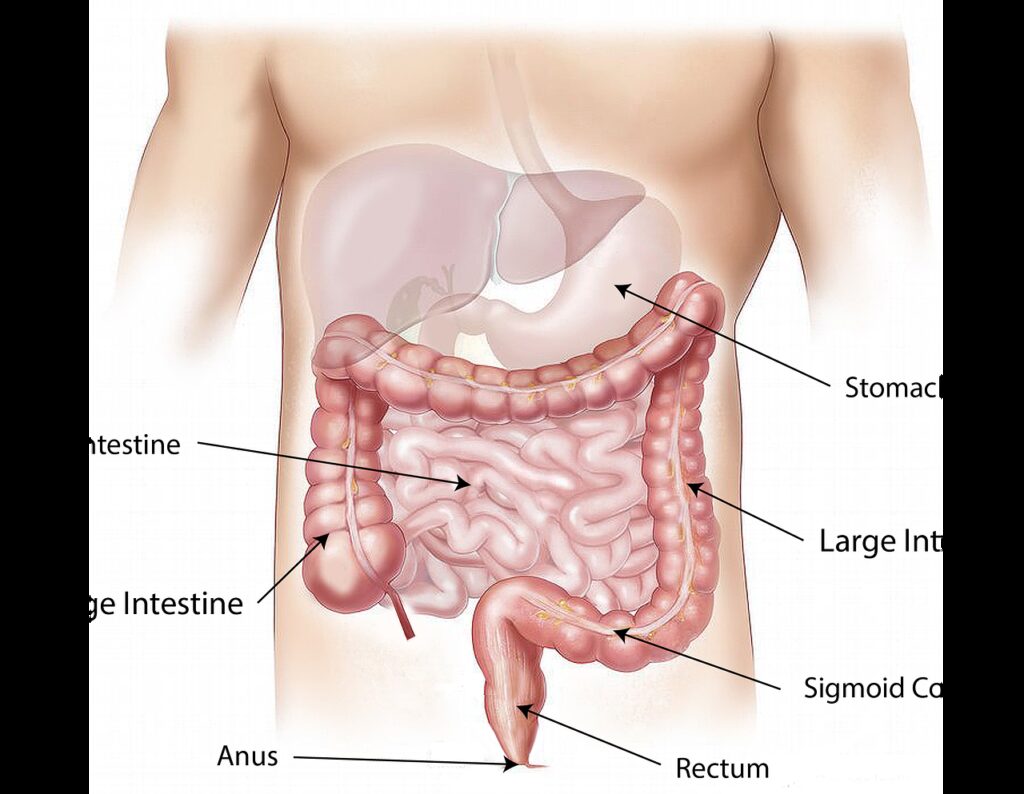Health
Understanding Digestive Tract Infections
Get a better understanding of digestive tract infections – from causes to symptoms and treatments. Explore the fascinating world of these uncomfortable conditions!
Imagine waking up one morning with a stomachache that just won’t go away. You may have experienced it before, but do you really understand what’s happening inside your body? In this article, we will take a closer look at digestive tract infections and unravel the mystery behind these uncomfortable and sometimes debilitating conditions. From the causes to the symptoms and treatments, you’ll gain a better understanding of how your digestive system works and what you can do to keep it healthy. So, sit tight and let’s explore the fascinating world of digestive tract infections together!

Definition of Digestive Tract Infections
Digestive tract infections, also known as gastrointestinal infections, are infections that occur in the digestive tract. The digestive tract, also called the gastrointestinal tract, is a series of organs that play a crucial role in the digestion and absorption of food. It includes the mouth, esophagus, stomach, small intestine, and large intestine. When pathogens such as bacteria, viruses, parasites, or fungi invade the digestive tract, they can cause infections that lead to various symptoms and complications.
Overview of the Digestive Tract
The digestive tract is a complex system responsible for breaking down food into nutrients that can be absorbed by the body. It begins with the ingestion of food through the mouth, where it is chewed and mixed with saliva. The food then travels down the esophagus to the stomach, where it is further broken down by stomach acid and enzymes. From the stomach, the partially digested food enters the small intestine, where most of the absorption of nutrients takes place. Finally, the remaining waste moves into the large intestine, where water is absorbed and the waste is formed into stool before being eliminated from the body.
What are Digestive Tract Infections?
Digestive tract infections occur when harmful microorganisms, such as bacteria, viruses, parasites, or fungi, invade the digestive tract and cause an infection. These infections can affect any part of the digestive tract, from the mouth to the rectum. They can range from mild to severe and can cause a wide range of symptoms such as diarrhea, abdominal pain, nausea, vomiting, and fever. Depending on the type of infection and the severity, treatment options may vary.
Common Types of Digestive Tract Infections
There are several types of digestive tract infections, each caused by different types of pathogens. The most common types include bacterial infections, viral infections, parasitic infections, and fungal infections. Bacterial infections can be caused by bacteria such as Salmonella, Escherichia coli (E.coli), and Campylobacter. Viral infections can be caused by viruses such as norovirus, rotavirus, and hepatitis A. Parasitic infections can be caused by parasites such as Giardia, Cryptosporidium, and Echinococcus. Fungal infections can be caused by fungi such as Candida and Aspergillus.
Causes of Digestive Tract Infections
Bacterial Infections
Bacterial infections of the digestive tract are usually caused by ingesting food or water that has been contaminated with bacteria. This can happen due to improper food handling, undercooked or raw food consumption, or poor sanitation practices. Bacteria such as Salmonella and E.coli are commonly associated with foodborne illnesses and can cause severe symptoms such as diarrhea, vomiting, and abdominal pain.
Viral Infections
Viral infections of the digestive tract are mainly caused by consuming food or water contaminated with viruses. These viruses can spread through contact with infected individuals, contaminated surfaces, or unsanitary food preparation practices. Norovirus and rotavirus are common viral pathogens that cause gastroenteritis, characterized by symptoms such as diarrhea, nausea, and vomiting.
Parasitic Infections
Parasitic infections of the digestive tract occur when parasites enter the body through contaminated food, water, or soil. These parasites can cause various diseases such as giardiasis, cryptosporidiosis, and amebiasis. Poor sanitation, inadequate hygiene practices, and traveling to regions with poor sanitary conditions increase the risk of parasitic infections.
Fungal Infections
Fungal infections of the digestive tract are relatively rare but can occur in individuals with weakened immune systems. These infections are often caused by the overgrowth of fungi such as Candida and Aspergillus in the digestive tract. Certain factors such as prolonged use of antibiotics, immunosuppressive medications, and underlying medical conditions can increase the susceptibility to fungal infections.
Contaminated Food and Water
Contaminated food and water are common sources of digestive tract infections. Food can become contaminated during production, processing, or handling, while water can become contaminated due to inadequate treatment or contamination from sewage or animal waste. Consuming contaminated food or water can introduce pathogens into the digestive tract, leading to infections.
Symptoms of Digestive Tract Infections
Digestive tract infections can cause a wide range of symptoms, varying from mild to severe. The symptoms can be classified into general symptoms, which are commonly experienced, and specific symptoms, which are specific to certain types of infections.
General Symptoms
General symptoms of digestive tract infections include diarrhea, abdominal pain or cramping, nausea, vomiting, fever, and fatigue. These symptoms can occur due to the body’s natural defense mechanisms and inflammatory response to combat the infection. In some cases, the symptoms may be mild and go away on their own, while in other cases, they may be severe and require medical attention.
Specific Symptoms
Specific symptoms of digestive tract infections can vary depending on the type of infection. For example, bacterial infections such as Salmonella can cause bloody diarrhea, while viral infections such as norovirus can cause projectile vomiting. Parasitic infections may cause symptoms such as weight loss, bloating, and abdominal discomfort. Fungal infections can lead to symptoms such as oral thrush, difficulty swallowing, and persistent diarrhea.
Severity of Symptoms
The severity of symptoms in digestive tract infections can vary depending on the type and virulence of the pathogen, as well as individual factors such as age, overall health, and immune status. In some cases, the symptoms may be mild and self-limiting, resolving on their own within a few days. However, in other cases, the symptoms may be severe and require medical intervention to prevent complications such as dehydration and nutrient deficiencies.

This image is property of images.pexels.com.
Diagnosis and Medical Tests
Diagnosing digestive tract infections involves a combination of physical examination, medical history evaluation, and laboratory tests. The healthcare provider will assess the symptoms, perform a physical examination, and ask about recent travel, exposure to contaminated food or water, and any underlying health conditions that may increase the risk of infection.
Physical Examination
During a physical examination, the healthcare provider will examine the abdomen for any tenderness or swelling. They may also check vital signs such as temperature, heart rate, and blood pressure to assess the severity of the infection and its impact on the body.
Medical History
The healthcare provider will take a detailed medical history to gather information about symptoms, duration of illness, recent food consumption, travel history, and any underlying health conditions. This information helps in narrowing down the possible causes of the infection and guides further diagnostic tests.
Stool Sample Analysis
Stool sample analysis is a common diagnostic test for digestive tract infections. The healthcare provider may collect a sample of stool to analyze for the presence of pathogens such as bacteria, viruses, parasites, or fungi. This test helps in identifying the specific pathogen causing the infection and determining the most appropriate treatment.
Blood Tests
Blood tests may be conducted to evaluate the overall health status, assess the immune response, and detect any abnormalities associated with the infection. These tests can help in determining the severity of the infection and identifying any complications that may require additional medical interventions.
Imaging Techniques
In certain cases, imaging techniques such as ultrasound, computed tomography (CT) scan, or endoscopy may be performed to visualize the digestive tract and identify any abnormalities. These tests are usually done if the healthcare provider suspects complications or wants to rule out other underlying conditions.
Treatment Options for Digestive Tract Infections
The treatment options for digestive tract infections depend on the underlying cause, severity of symptoms, and individual factors. The main goals of treatment are to relieve symptoms, prevent complications, and promote recovery. The treatment options may include rehydration therapy, antibiotics, antiviral medications, antifungal medications, and specific treatments for parasitic infections.
Rehydration Therapy
Rehydration therapy is a crucial aspect of treating digestive tract infections, especially when diarrhea and vomiting lead to fluid and electrolyte losses. Oral rehydration solutions or intravenous fluids may be administered to restore hydration and maintain electrolyte balance.
Antibiotics
Antibiotics may be prescribed for bacterial infections that are severe or persist for an extended period. The choice of antibiotics depends on the specific bacteria causing the infection and the susceptibility to different antibiotics. It is important to take the full course of antibiotics as prescribed by the healthcare provider to ensure effective treatment.
Antiviral Medications
Antiviral medications are used to treat viral infections such as hepatitis A and certain types of gastroenteritis. These medications can help reduce the severity and duration of symptoms but are often only prescribed in specific cases, such as outbreaks or complications in vulnerable individuals.
Antifungal Medications
Antifungal medications are used to treat fungal infections of the digestive tract, especially in individuals with weakened immune systems. These medications can help control the overgrowth of fungi and reduce symptoms such as oral thrush and persistent diarrhea.
Parasitic Infection Treatments
Specific treatments may be prescribed for parasitic infections based on the type of parasite involved. These treatments can include oral medications, such as antiparasitic drugs, that target and eliminate the parasites from the digestive tract. The duration of treatment may vary depending on the specific parasite and the severity of the infection.
Prevention of Digestive Tract Infections
Preventing digestive tract infections primarily involves adopting good hygiene practices, practicing food safety measures, ensuring safe water practices, getting appropriate vaccinations, and taking travel precautions.
Hand Hygiene
Practicing good hand hygiene is crucial in preventing the spread of digestive tract infections. Washing hands with soap and water for at least 20 seconds before handling food, after using the restroom, and after coming into contact with potentially contaminated surfaces can help reduce the risk of infection.
Food Safety Measures
Following proper food safety measures can reduce the risk of ingesting contaminated food. This includes cooking food thoroughly, avoiding cross-contamination between raw and cooked foods, storing food at appropriate temperatures, and practicing good hygiene during food preparation and handling.
Safe Water Practices
Ensuring the safety of water is important in preventing waterborne infections. It is advisable to drink water from safe and reliable sources, such as treated tap water or bottled water. When traveling to regions with poor sanitation, it is recommended to drink bottled or boiled water and avoid consuming drinks with ice or fruits and vegetables that may have been washed with contaminated water.
Vaccinations
Getting vaccinated against certain infections can help prevent digestive tract infections. Vaccines such as hepatitis A vaccine and rotavirus vaccine can provide protection against specific pathogens and reduce the risk of infection. It is important to stay up to date with recommended vaccinations and consult with healthcare providers regarding specific vaccination needs.
Travel Precautions
When traveling to areas with a higher risk of digestive tract infections, it is important to take additional precautions. This may include avoiding raw or undercooked foods, drinking safe water, practicing good hand hygiene, and getting any recommended travel vaccinations or prophylactic medications.
Complications and Risks
Digestive tract infections can sometimes lead to complications, especially if left untreated or if the individual is more susceptible due to certain factors. The most common complications include dehydration, nutritional deficiencies, complications in vulnerable populations, and potential long-term health effects.
Dehydration
Dehydration is a common complication of digestive tract infections, especially when diarrhea and vomiting lead to fluid and electrolyte losses. Severe dehydration can cause dizziness, weakness, rapid heartbeat, and can be life-threatening, especially in young children and older adults. Rehydration therapy is essential in preventing and treating dehydration.
Nutritional Deficiencies
Digestive tract infections can interfere with the absorption and utilization of nutrients, leading to nutritional deficiencies. Prolonged diarrhea and vomiting can result in the loss of essential nutrients such as electrolytes, vitamins, and minerals. It is important to replenish these nutrients through a balanced diet or nutritional supplements to prevent deficiencies and support recovery.
Complications in Vulnerable Populations
Certain populations, such as young children, older adults, and individuals with weakened immune systems, are more susceptible to complications from digestive tract infections. These individuals may experience more severe symptoms, have a higher risk of dehydration and nutrient deficiencies, and may require additional medical interventions to manage the infection effectively.
Long-term Health Effects
In some cases, digestive tract infections can have long-term health effects. Chronic infections or complications from severe infections can lead to persistent gastrointestinal symptoms, functional bowel disorders, and an increased risk of certain gastrointestinal diseases. It is important to seek appropriate medical care and follow-up to monitor and manage any potential long-term effects.
When to Seek Medical Attention
While many digestive tract infections resolve on their own within a few days, there are certain situations where medical attention is necessary.
Persistent or Severe Symptoms
If you experience persistent or severe symptoms such as high fever, severe abdominal pain, persistent vomiting, bloody stools, or signs of dehydration, it is important to seek medical attention. These symptoms may indicate a more severe infection or complications that require prompt treatment.
Symptoms in Young Children or Older Adults
Young children and older adults are more vulnerable to complications from digestive tract infections. If you notice symptoms such as lethargy, irritability, decreased urine output, or refusal to eat or drink in young children, or if you observe signs of dehydration or worsening symptoms in older adults, it is important to seek medical attention.
Underlying Health Conditions
If you have underlying health conditions, such as a weakened immune system or chronic gastrointestinal diseases, you may be at a higher risk of complications from digestive tract infections. It is important to consult with your healthcare provider for appropriate evaluation and management of the infection based on your specific health condition.
Home Remedies and Self-care
In addition to medical treatment, there are several home remedies and self-care measures that can help alleviate symptoms and support recovery from digestive tract infections.
Fluid Intake
Staying hydrated is crucial in managing digestive tract infections. Drink plenty of fluids, such as water, clear broths, herbal teas, and oral rehydration solutions, to replenish the fluids and electrolytes lost through diarrhea and vomiting.
Dietary Modifications
During the acute phase of the infection, when digestive symptoms are severe, it may be necessary to modify your diet temporarily. Avoid foods that are spicy, fatty, or hard to digest. Opt for bland, easily digestible foods such as toast, rice, boiled potatoes, and bananas. Gradually reintroduce a balanced diet as tolerated.
Probiotics
Probiotics are beneficial bacteria that promote a healthy balance of gut flora. They can help support digestion and boost the immune system. Consuming probiotic-rich foods, such as yogurt, sauerkraut, and kimchi, or taking probiotic supplements may help in the recovery process.
Rest and Recovery
Allowing your body to rest and recover is important in managing digestive tract infections. Get plenty of rest and avoid strenuous activities until your symptoms subside. Adequate sleep and relaxation can support the healing process and boost your immune system.
Conclusion
Digestive tract infections can cause a range of symptoms and complications, but with timely diagnosis and appropriate treatment, most infections can be effectively managed. Preventive measures such as good hand hygiene, food safety practices, safe water practices, vaccinations, and travel precautions can help reduce the risk of infections. If you experience persistent or severe symptoms, it is important to seek medical attention to prevent complications and ensure a swift recovery. By taking care of your digestive tract health and practicing proper hygiene, you can minimize the risk of digestive tract infections and maintain good overall health.




